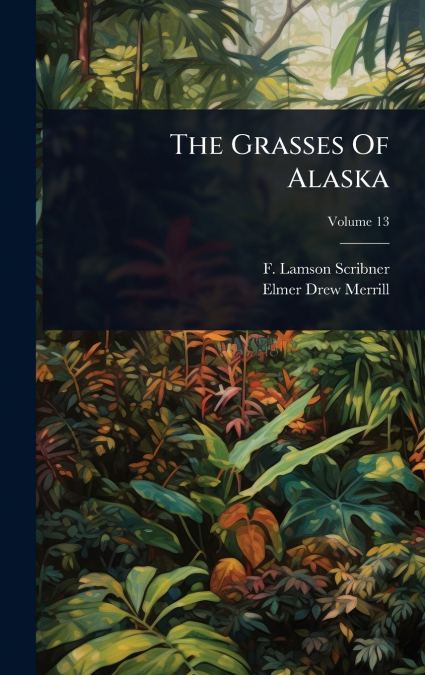
F. Lamson-Scribner / Elmer Drew Merrill
The Grasses of Alaska, Volume 13, by F. Lamson-Scribner and Elmer Drew Merrill, is a comprehensive botanical study focused on the diverse grass species found in the Alaskan territory. This meticulously researched work offers detailed descriptions and classifications, providing an invaluable resource for botanists, ecologists, and students of natural history. The authors delve into the taxonomy, distribution, and ecological significance of various grass species, contributing to a deeper understanding of Alaska’s unique flora. Originally published as part of a larger series on Alaskan flora, this volume remains an essential reference for those studying plant life in extreme environments. Its enduring value lies in its thoroughness and the expertise of its authors, making it a significant contribution to the field of botany. Whether you’re a seasoned researcher or a budding naturalist, âThe Grasses of Alaskaâ offers a wealth of knowledge and insight into the fascinating world of Alaskan plant life.This work has been selected by scholars as being culturally important, and is part of the knowledge base of civilization as we know it. This work was reproduced from the original artifact, and remains as true to the original work as possible. Therefore, you will see the original copyright references, library stamps (as most of these works have been housed in our most important libraries around the world), and other notations in the work.This work is in the public domain in the United States of America, and possibly other nations. Within the United States, you may freely copy and distribute this work, as no entity (individual or corporate) has a copyright on the body of the work.As a reproduction of a historical artifact, this work may contain missing or blurred pages, poor pictures, errant marks, etc. Scholars believe, and we concur, that this work is important enough to be preserved, reproduced, and made generally available to the public. We appreciate your support of the preservation process, and thank you for being an important part of keeping this knowledge alive and relevant.